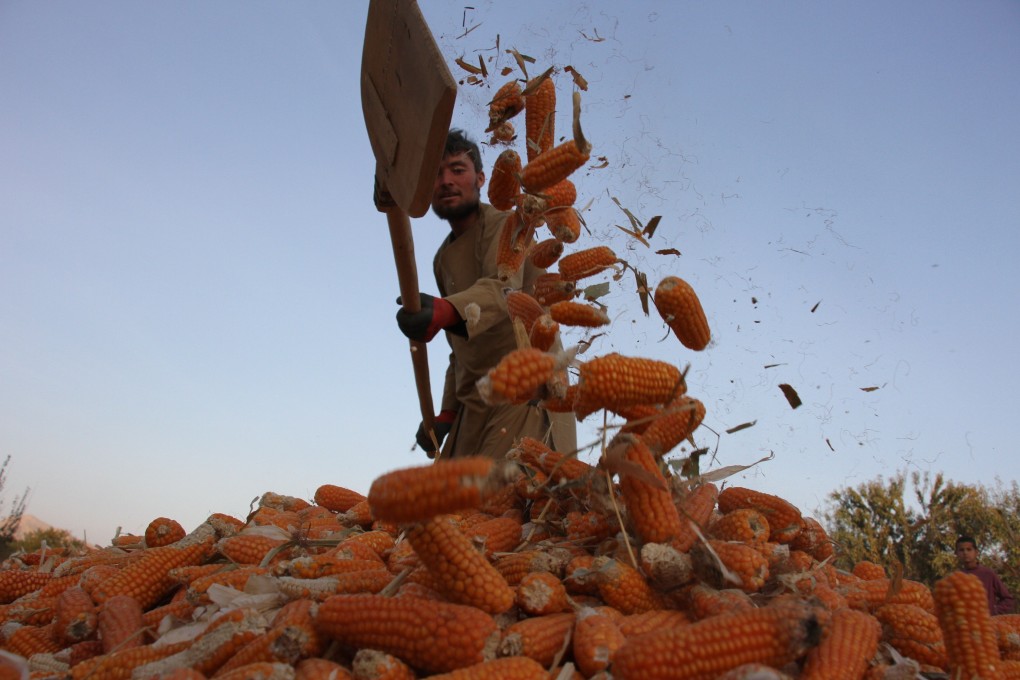CIIE: China, Afghanistan cultivate deeper ties with agriculture deals
- As Afghanistan endeavours to pull its economy out of a post-war slump, China has stepped in with agriculture agreements that will boost trade and cement ties
- After US troop withdrawal and Taliban victory, the country presents a ripe opportunity for China to fill a power vacuum along its border

China is expanding its agricultural trade with Afghanistan, deepening relations with the war-torn country as it attempts a return to normal economic activity, tangles with sanctions from the West and rebuilds after a devastating earthquake in October.
The world’s second-largest economy may start importing Afghan pomegranates next month with an initial shipment of 1,000 tonnes via an “agricultural cooperation” deal, a trader at the China International Import Expo told the Post on Monday.
Those shipments would start after more than two years of approval and certification work, said exhibitor Shams Ullah Shams, general manager of the Afghanistan export firm Biraro. His company took 200 tonnes to the show as samples this month.

“We can’t sell them, just give them to our Chinese friends to try, and after five days they’ll be gone,” Shams said with a hopeful laugh.
Afghanistan’s once nearly US$20 billion economy crashed to US$14.58 billion in 2021 as the country of 40.1 million people experienced a food shortage. One in every two Afghans is poor, according to the World Bank.
The Islamic fundamentalist Taliban regained power the same year, after a long military struggle ended with the withdrawal of US troops.
It now faces post-war sanctions from the West, purportedly imposed over the legitimacy of its leadership and women’s access to education.
